The rejection is the latest in a string of such rulings as Judge Koh attempts to whittle down the scope of patent litigation between the two electronics industry heavyweights before the claim-heavy case moves to a jury trial, reports Reuters.
In the order Judge Koh explained that parties seeking to seal certain records in cases tried in the Ninth Circuit must show both "good cause" and meet a "compelling reasons" standard. She goes on to remind both companies of a late June trial management hearing in which the court noted that “the whole trial is going to be open.â€
From the order:
At this stage of the proceedings, the presumption of openness will apply to all documents and only documents of exceptionally sensitive information that truly deserve protection will be allowed to be redacted or kept from the public. Nearly all of the documents which met the lower, “good cause†standard do not meet the higher, “compelling reasons†standard for trial.
Unless the court document in question is a "traditionally kept secret" such as business or trade operations there is a “strong presumption in favor of access.†In order to overcome this assumption a party must “'articulate[ ] compelling reasons supported by specific factual findings,' that outweigh the general history of access and the public policies favoring disclosure, such as the 'public interest in understanding the judicial process.'"
She adds that the Ninth Circuit augments the "compelling reasons" standard by requiring evidence of “good cause†to keep sealed records attached to non-dispositive motions. The combination of requirements creates a two tiered system that views judicial records attached to dispositive motions differently than records attached to non-dispositive motions.
Judge Koh writes that "[n]early all of the documents which met the lower, “good cause†standard do not meet the higher, “compelling reasons†standard for trial."
Apple and Samsung must now reevaluate the documents they want sealed and present them again to Judge Koh at a later date.
 Mikey Campbell
Mikey Campbell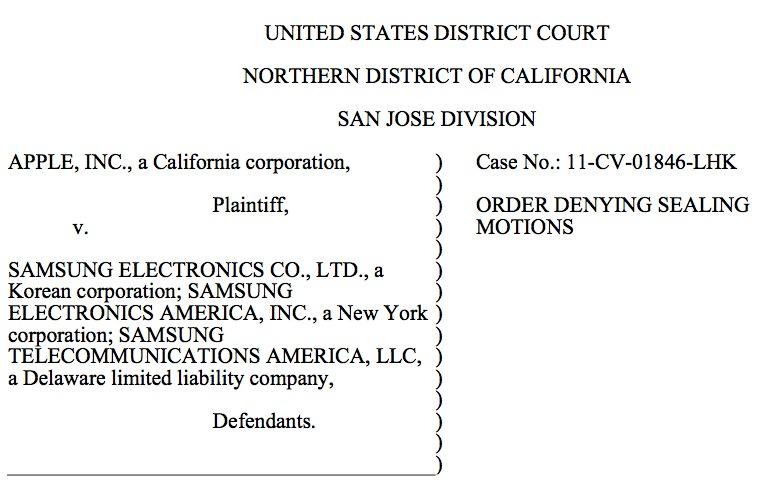







-m.jpg)






 Christine McKee
Christine McKee
 Amber Neely
Amber Neely
 Andrew Orr
Andrew Orr
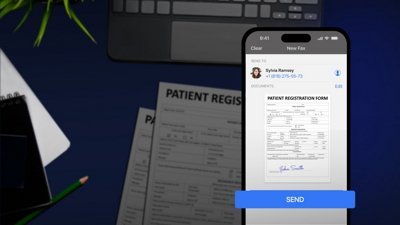
 Sponsored Content
Sponsored Content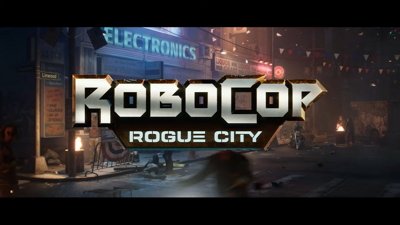
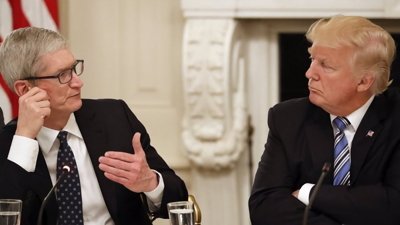
 William Gallagher
William Gallagher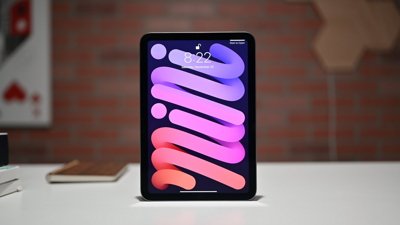









3 Comments
Judge: So, Apple what secret documents do you have! Apple: Product A in 2012, Product B in 2013, Product C in 2014, and Product D in 2015. Judge: Excellent!!! And Samsung! What do you have? Samsung: What they said...only Product A in 2013, Product B in 2014, Product C in 2015...
Judge: So, Apple what secret documents do you have!
Apple: Product A in 2012, Product B in 2013, Product C in 2014, and Product D in 2015.
Judge: Excellent!!! And Samsung! What do you have?
Samsung: What they said...only Product A in 2013, Product B in 2014, Product C in 2015...
Judge: So apple, what secret documents do you have?
Apple: We have revolutionized the market with a 4-inch screen phone and a 7 inch tablet. No other company has ever done this and to prevent any of them stealing our idea, we wish to keep this secret.
Judge: That's all?
Apple: No no, we also have some other firsts that we don't want Samsung to know about so they can blatantly copy. Like our turn by turn directions, LTE integration or our burst shot mode for our iphone 5 camera. If Samsung see these documents they will steal our ideas.
Judge: So that's it?
Apple: No no, we also have a face unlock, mobile projector and a feature which watches the users face to determine if they are using the phone or not, all going to used by us first.
Judge: Wow, that's a lot. You done?
Apple: No no Judge, Just like they stole our idea for multi-tasking we are also afraid that they steal our idea for a street view mode in their maps
Judge: Agreed, to allow Apple to keep the inventions mentioned secret from the competition so they won't steal it, I rule to keep these documents sealed.
This judge really is penalizing them for not settling this out of court. She telling them if they want to proceed it will be open komono to the public so Apple will have to decide if letting the information they have into the public domain or just decide to walk away from this all.
The Courts really do not want to deal with this, and the judge has not made it easy for either side.